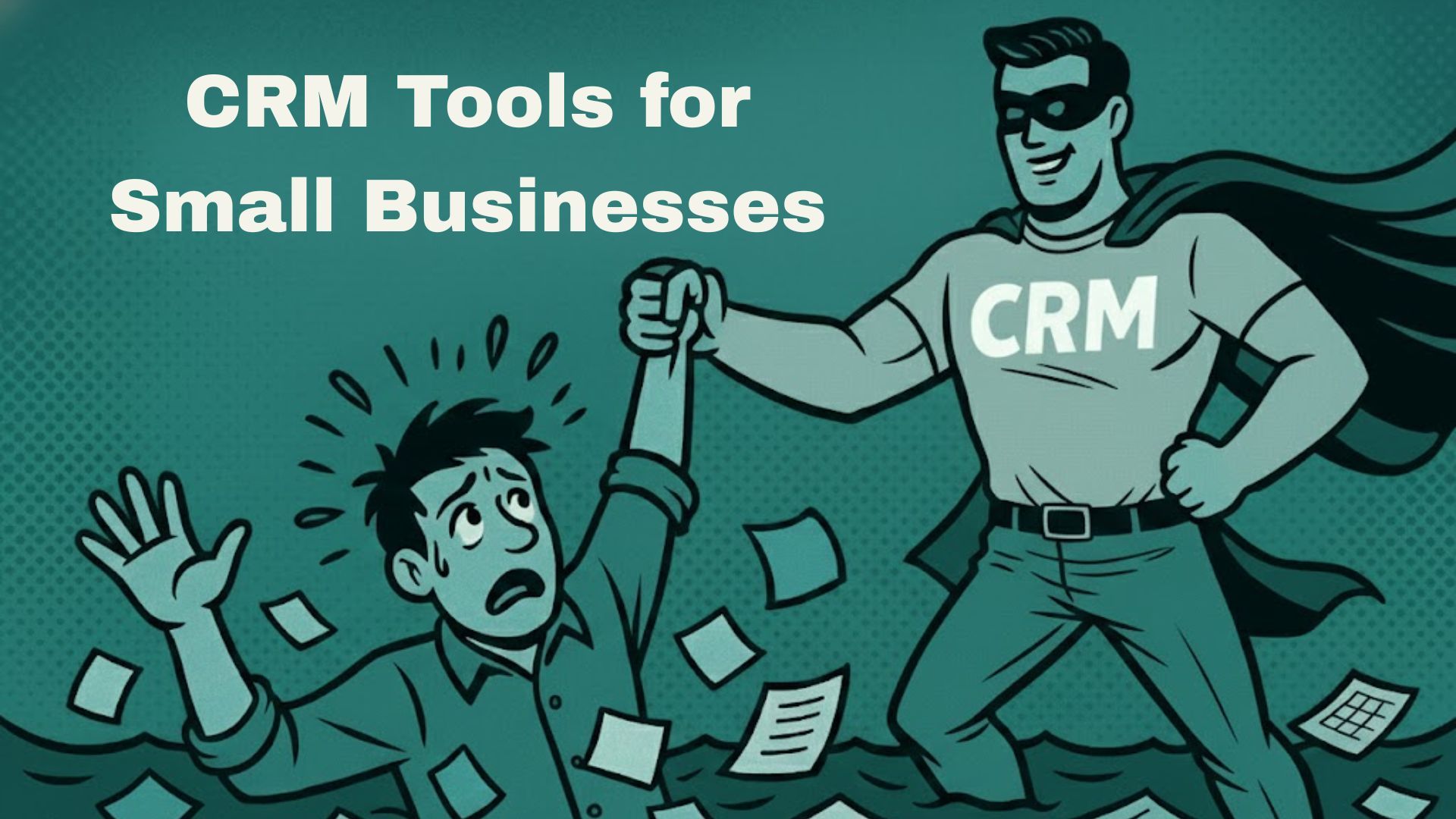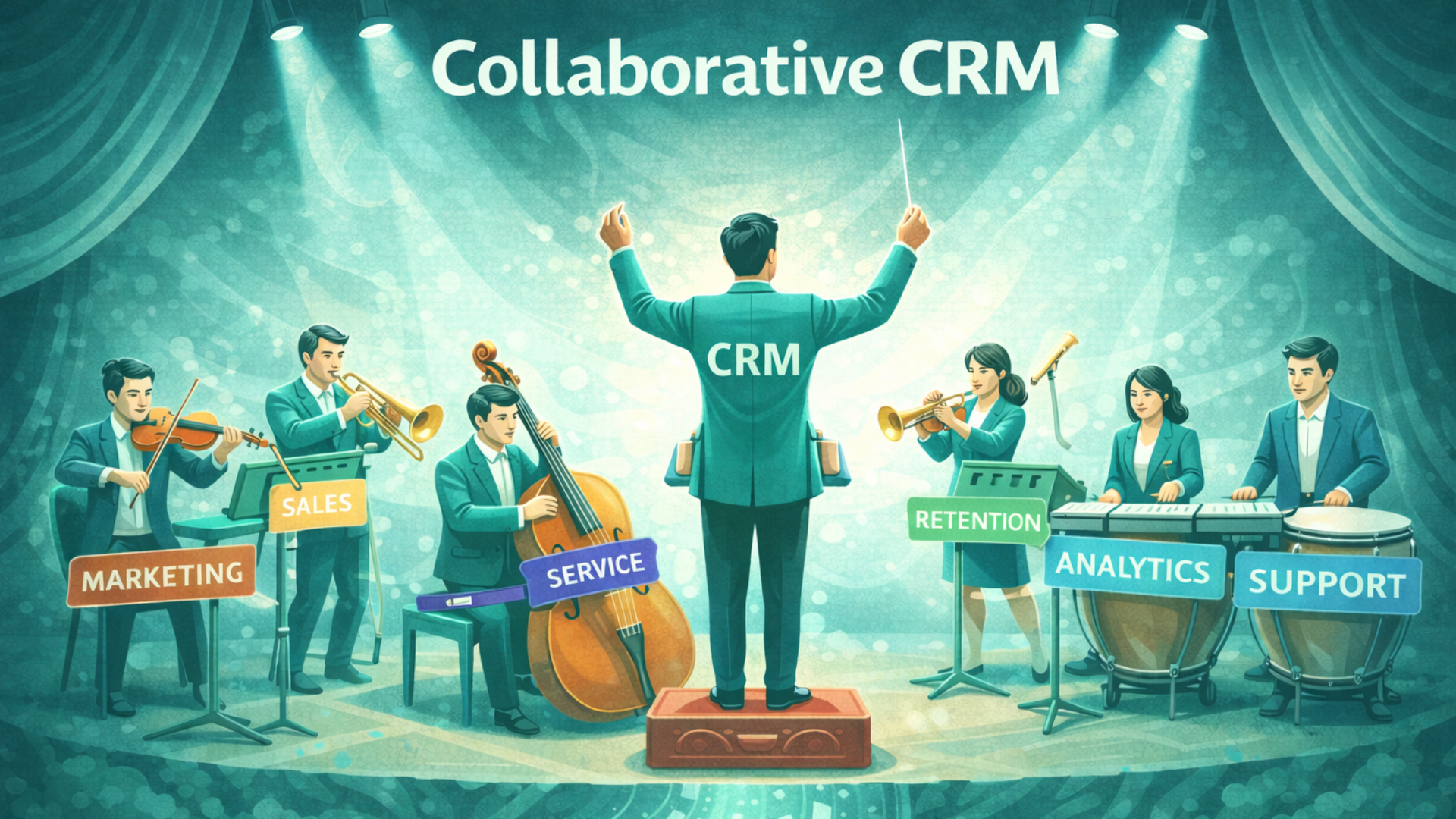

Every lead that "slips through the cracks" creates a hole in your revenue. Using a CRM for small businesses signifies the end of their spreadsheet era. Whether you're a solo founder or a team of 10, this guide breaks down how CRM actually works for small teams, what features truly matter (and which ones don’t), real-world use cases, and how growing businesses use CRM to scale without increasing headcount.
What does CRM for small businesses do?
Small businesses don’t operate with a set process in place, be it sales calls, marketing or even service enquiries.
Without a CRM, this lack of structure increases the risk of:
- Losing potential leads
- Forgetting follow-ups
- Inconsistent customer communication
A CRM for small businesses centralizes all customer data - contacts, leads, deals, and conversations - into one system. Crucially, it provides "Zero-Touch Attribution," allowing you to identify exactly where your leads are coming from - be it SEO, referrals, or social media - so you stop wasting budget on marketing that doesn't convert.
Teams also gain visibility into every interaction, schedule timely follow-ups, centralize data, improve sales performance and boost retention rates as well.
For example, a small online shop could use a CRM to track each customer’s orders and send follow-up emails, instead of juggling spreadsheets. A local service startup might use CRM to log inquiries and schedule follow-ups.
Who should use a CRM for small businesses?
A CRM for small businesses is ideal for:
- Solo founders and entrepreneurs managing leads independently
- Small sales teams (2-20 people)
- Local service businesses (consultants, agencies, clinics, real estate)
- Retail and eCommerce businesses handling repeat customers
- Startups and SMBs without a dedicated sales operations team
In fact, companies using a CRM have reported a 300% increase in conversion rates and an average $8.71 return for every $1 spent (demandsage). These improvements come from automated lead scoring - ensuring your team calls the "hottest" leads first - and organized sales processes.
In India, the CRM market is rapidly growing too - projected to hit $2.65 billion by 2030 - reflecting how essential CRMs are for businesses of all sizes. In terms of budget, there are many affordable and free tools that provide top-notch usability.
Features that save 10+ hours in a CRM for small businesses
To maximize ROI, don't look for the most features - look for the features your team will actually use to drive revenue.
Contact & Lead Management: Single source of truth for all client contacts. Maintaining data quality here prevents duplicate records and ensures your outreach hits the right inbox every time.
Sales Pipeline / Deal Tracking: Visual view of where each lead stands in their journey. They could be a hot/cold lead, in negotiation, or won/lost.
Task / Follow-up Reminders: Automation on follow-ups, meetings, deadlines, calls or even emails, so no activity is forgotten.
Email Integration: Integrate email and messaging apps like WhatsApp within CRM to send, receive, and track conversations directly.
Automation & Workflows: Simple workflows such as auto-assigning new leads, auto-sending a welcome email and resting follow-up tasks that save time.
Mobile Access: A mobile or web view since small businesses sell on the go. This is critical for field sales and multi-location teams.
Reporting & Dashboards: Basic report on real-time insights into calls made, deals won, sales performance, lead sources, and customer engagement trends to always know what’s working.
User-Friendly Interface: Intuitive user experience which doesn’t require extensive training.
Scalability: A CRM that allows feature add-ons as you grow.
Cloud-Based & Support: To access from anywhere with secure data storage, and automatic updates. Additionally, responsive support (chat, email, or phone) ensures small businesses can solve issues quickly without a dedicated IT team.
Low Cost or Free Plan: Tiered pricing where you can use a free plan and decide to upgrade if need be.
Real-world use cases of CRM for small businesses
Small Retail Business: Tracks repeat customers, manages promotions, and sends follow-up offers after purchases.
Local Service Provider: Logs enquiries, schedules callbacks, and automates follow-ups after service completion.
B2B Startup: Manages inbound leads, tracks deal stages, and monitors sales pipeline without spreadsheets.
Consulting or Coaching Firm: Uses CRM to manage client conversations, invoices, and recurring follow-ups in one place.
What are the best practices when using a CRM
- Migrate your existing customer list into the CRM. Segment them as ‘Lead’, ‘Customer’, ‘Partner’.
- Every interaction (calls & emails) must be logged for, so your team can view history.
- Automate all follow ups & reminders using workflow features like setting tasks to contact a lead after 2 days.
- Capture leads using web forms or email within the CRM to ingest new leads (as one example, a small consulting firm might set up a web form that creates a new lead record when filled).
- Always stay updated on the sales pipeline. CRMs usually let you customize stages in the client journey. (e.g. ‘New → Contacted → Demo → Closed’).
- Ensure everyone uses the CRM consistently (e.g. all new leads go into CRM, not personal spreadsheets). Choose a CRM that your whole team actually will use.
How teams use Superleap CRM for small businesses
As your business grows, the right CRM should scale with you - adding automation, reporting, and integrations without forcing a complete system change.
Choosing a simple CRM early helps avoid future migration challenges and ensures consistent data as your customer base expands.
Superleap is designed to simplify CRM adoption for small teams by combining lead management, communication tracking, and automation into one intuitive system.
For growing businesses, it helps replace fragmented tools with structured workflows, making it easier to track opportunities and follow-ups without increasing headcount.
Conclusion
A good CRM is not limited to big companies. The market is packed with free and affordable sales CRM for small businesses that serve effectively to different use cases.
Heading text
Nunc sed faucibus bibendum feugiat sed interdum. Ipsum egestas condimentum mi massa. In tincidunt pharetra consectetur sed duis facilisis metus. Etiam egestas in nec sed et. Quis lobortis at sit dictum eget nibh tortor commodo cursus.
Odio felis sagittis, morbi feugiat tortor vitae feugiat fusce aliquet. Nam elementum urna nisi aliquet erat dolor enim. Ornare id morbi eget ipsum. Aliquam senectus neque ut id eget consectetur dictum. Donec posuere pharetra odio consequat scelerisque et, nunc tortor.
Nulla adipiscing erat a erat. Condimentum lorem posuere gravida enim posuere cursus diam.




.jpg)
.jpg)
.svg)
